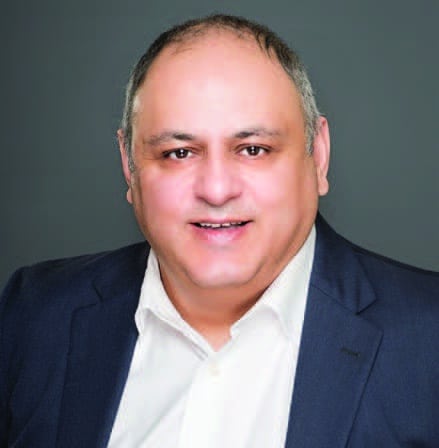While there isn’t a universal repayment method for student loans that suits everyone, there are several strategies that can accommodate various individual circumstances.
Regrettably, there is no one-size-fits-all repayment method for student loans. Each dentist has a unique situation that requires careful consideration. Nevertheless, it is possible to discover the most suitable approach based on your personal circumstances. Let’s examine the available repayment options and identify the individuals who might benefit from each.
Debt-to-income ratio
Before delving into the repayment methods, it is important to determine your debt-to-income ratio. This ratio is calculated by dividing your student loan balance by your gross income. For instance, if your student loan balance is $170,000 and your gross income is $200,000, your debt-to-income ratio is 0.85. On the other hand, if your student loan balance is $350,000 and your gross income is $125,000, your debt-to-income ratio would be 2.8.
This ratio helps determine the most suitable repayment method for you. While it’s not the sole determinant, it serves as an excellent starting point.
Taxable forgiveness
Taxable forgiveness is granted after making 20-25 years of qualifying payments on any of the IDR plans. No additional employment requirements are necessary for eligibility. At the end of the repayment term, the remaining balance is canceled, but it is added to your taxable income. This means you will owe more in taxes that year, even though you didn’t earn any additional money.
Is taxable forgiveness the right choice for you?
Taxable forgiveness may be the best financial strategy if your debt-to-income ratio is 1.25 or greater. The higher your debt-to-income ratio, the more advantageous this strategy becomes. Pursuing taxable forgiveness also provides greater cash flow flexibility early in your career, as your payments on an IDR plan will likely be much lower than those on the standard 10-year plan. The extra money you save can be utilized in more beneficial ways, such as investing in a dental practice, making a down payment on a home, or starting a family.
The path of taxable forgiveness also encourages pretax saving for retirement, commonly done through a 401(k) plan at your dental office or a personal traditional individual retirement account (IRA). By saving pretax, your adjusted gross income (AGI) decreases, resulting in lower required student loan payments.
The primary objective of taxable forgiveness is to minimize your payments over time and have a significant portion of your debt canceled at the end of the repayment term. Under ideal circumstances, the combined amount of your payments and the cancellation tax may turn out to be less than what you would pay through an aggressive full repayment. However, it’s important to note that starting from July 2022, there will be additional taxes due upon forgiveness. Thus, it is advisable to start saving additional funds to cover the potential tax burden that may arise in the future.
Public service loan forgiveness (PSLF)
PSLF entails tax-free forgiveness once certain conditions are met. You must make 120 on-time payments (equivalent to 10 years of monthly payments) while being enrolled in an income-driven repayment (IDR) plan (such as IBR, PAYE, REPAYE, or ICR plans). Additionally, you must be employed by a 501(c)3 nonprofit organization or a government employer. Common qualifying employers for dentists include nonprofit hospitals, veteran’s affairs hospitals, and dental schools.
Is PSLF the right choice for you?
The first consideration is whether you plan to work for a qualifying employer for a minimum of 10 years. If you intend to work in private practice, PSLF wouldn’t be an option. However, if you expect to spend at least a decade at a qualifying employer and your debt-to-income ratio is above 1.25, then PSLF might be a suitable option.
Another scenario where PSLF might be applicable is during a lengthy residency. Most residencies and fellowships qualify as PSLF-eligible jobs. For example, if you choose the oral and maxillofacial surgery (OMFS) specialty with a six-year residency, you could follow that with a few more years in public service and have your loans forgiven relatively quickly after completing your residency. The caveat is that you would need to enter an IDR repayment plan during residency rather than pursuing in-school deferment.
Since resident pay is generally not substantial, your payments during this period would likely be small.
Private refinancing
Private refinancing involves converting your federal student loans into private loans, acquiring a new loan with a lower interest rate and a new repayment period from a private lender. However, it is crucial to consider private refinancing only if you can secure a lower interest rate.
Is private refinancing the right choice for you?
If your debt-to-income ratio is 1.25 or lower, private refinancing is likely the most financially advantageous solution. In such cases, pursuing taxable forgiveness may result in paying off the loan before any forgiveness is achieved. Once you have refinanced at a lower interest rate, the goal is to pay off the loan as quickly as possible, minimizing the total repayment amount over the course of the loan.
However, it’s important to keep in mind that once you switch to private refinancing, you cannot revert back to the federal system. Therefore, it is crucial to carefully consider this direction before committing to it.
Determining the Best Option
If you plan to work in a qualifying public service job for at least 10 years and have a debt-to-income ratio of 1.25 or greater, PSLF might be the appropriate choice for you.
If you intend to work in private practice, have a debt-to-income ratio of 1.25 or greater, and are comfortable with paying the minimum amount on your loans for 20-25 years, taxable forgiveness could be a suitable option.
On the other hand, if your debt-to-income ratio is less than 1.25 or you prefer not to repay your loans over a period of 20-25 years, private refinancing might be the right solution.
This guide provides an overview of potential repayment plans based on a few factors. However, there are numerous other factors to consider in your life before determining the repayment path that aligns best with your individual circumstances. For personalized advise, book in a consultation to talk to Fazel at Dental CPA. An expert in Dental Practices, Fazel specializes in financial accounting, tax planning, and practice purchase and set up.
Disclaimer: Dental CPA is a registered investment advisor in California and other jurisdictions where exempted. The information provided in this article is not intended as investment, tax, accounting, or legal advice. This material is for educational purposes only and should not be construed as investment advice or an offer or solicitation to buy or sell securities




